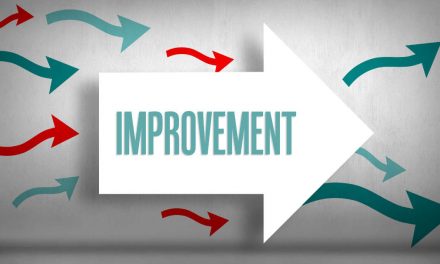By Steve Moran
Private equity firms and REITs exist to make money for their shareholders. Their singular job is to maximize profits. This ultimately means maximizing revenues and minimizing expenses. In theory, this should lead to creating a great experience for residents, if you believe there is a more or less straight line between creating great resident experiences and having higher revenue and profits.
A recent article in The Wall Street Journal titled “Crises at Boeing and Intel Are a National Emergency” demonstrates the practical problem. This quote has direct application to senior living (emphases mine):
Neither fell prey to cheap foreign competition but to their own mistakes. Their culture evolved to prioritize financial performance over engineering excellence, which also brought down another manufacturing icon, General Electric.
Intel passed on making the chips for Apple’s first iPhone, thinking it wouldn’t be profitable enough. It was late to adopt the latest technology for etching the tiniest circuits, and it missed the boom in artificial intelligence.
Boeing thought it would be cheaper and faster to add more efficient engines to its bestselling 737 with the help of software rather than completely redesign or replace the plane. That contributed to two fatal crashes. Outsourcing of its supply chain and an exodus of experienced machinists during the pandemic contributed to quality problems and delays.
Financial Performance Over Excellence
In my very simple mind the singular best way to achieve high profits is to focus on excellence, and over the long run there is no doubt this is true.
BUT
The big problem is that organizations that are only focused on maximizing profits don’t think strategically. They think about what is going to create the biggest profits next quarter or next year. This has been the thinking at Intel and Boeing, and earlier at General Electric. And the results are always the same. In the short-term, profits rise, but the lack of concern about excellence always catches up and crushes profits.
But it is worse than that. Focusing only on profits ultimately not only destroys profits, it destroys companies, and it hurts people.
Thinking Long-Term
It is really hard to think this way. Many of the early investors in Nvidia found themselves delighted when, in a very short period of time, they doubled and tripled their money. They did the only logical thing, which was to sell their stock and take a profit.
But there were a few people who thought … “I like this stock, I like profits, but what if, given a little time, it might go higher?” Those people who were thousandaires are now seriously multimillionaires. Today, as I’m writing this, shares closed at $140 a share. If you bought 200 shares in 2019, you would have paid around $150 a share, or $30,000, then watched them split in 2021, turning the 200 shares into 800 shares — and then in 2024, watched those 800 shares split again, turning them into 8,000 shares. Today those shares would be worth more than $1,100,000. That’s a pretty good return.
Those are the kinds of returns that are available in senior living — but only with long-term thinking that is committed to the idea that creating value, creating great experiences for residents, teams, families, and the community marketplace, is the best path to sustainable, mind-boggling profits.
This mentality allows you to spend a little more money on staffing, on food, on other amenities. A little more on technology.
The results will be so much better.









Suggesting senior living can produce Nvidia type returns is ridiculous. The example you provide is a 36x return. Simply not possible in a real estate dependent and labor intensive business. Senior living is not scalable like a tech company. With that said, I do agree that real estate investors are not aligned with operators in most instances. Senior living is a challenging business on a good day.
Maybe you are right about Nvida but the returns can be massive. Develop and new community fill it to capacity and sell it, perhaps not a 36X return but a massive increase is possible. I Could name a few dozen owners and operators who have made significant fortunes building, purchasing and selling and or operating senior living communities.
I briefly worked at an Assisted Living/Memory Care community (in CA) owned by. REIT based in TX. I was the Community Relations Director.
They put ZERO investment in their product. None. As a result it did not show well. There is only so much “spinning” that one can do. 🙄 They said “move people in and we do some capital investment. Ultimately they fired me for non-performance. I now am at a smaller, non-REIT owned community and we’re close to being full. Of course, it’s because they make investment in their product. I have something meaningful and wonderful to sell. I have happy residents and happy families.
Over time this behavior always comes with a price.
Communities in my area of Florida are changing ownership and management companies at a fast pace. I’ve wondered about this very topic over the last couple of years. We have a couple of beautiful buildings that aren’t filling up, people move out, Key staff leave due to overwork and unrealistic goals set by “Corporate”. Or large roles are filled by underqualified people, which lead to all sorts of issues. Communities are more expensive than ever to live in – people expect good food, ample activities, and friendly staff to care for them. This doesn’t seem like the type of business for investors.
These are exactly my worries. I think these are good investments for investors who want to put their money to work in a way that improves the lives of people; investors who are not trying for a moon shoot with each investment and investors who want a good solid return. There is this famous Warren Buffett quote “Our favorite holding period is forever. We are just the opposite of those who hurry to sell and book profits”
That is how it should be with senior living investors.